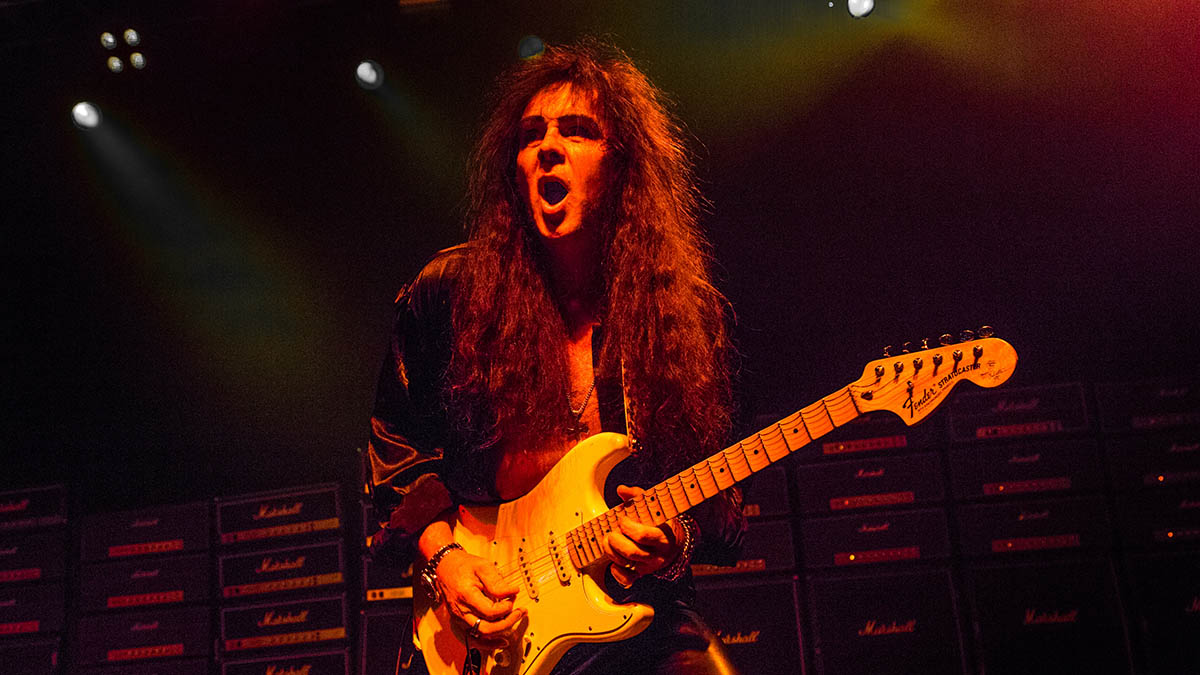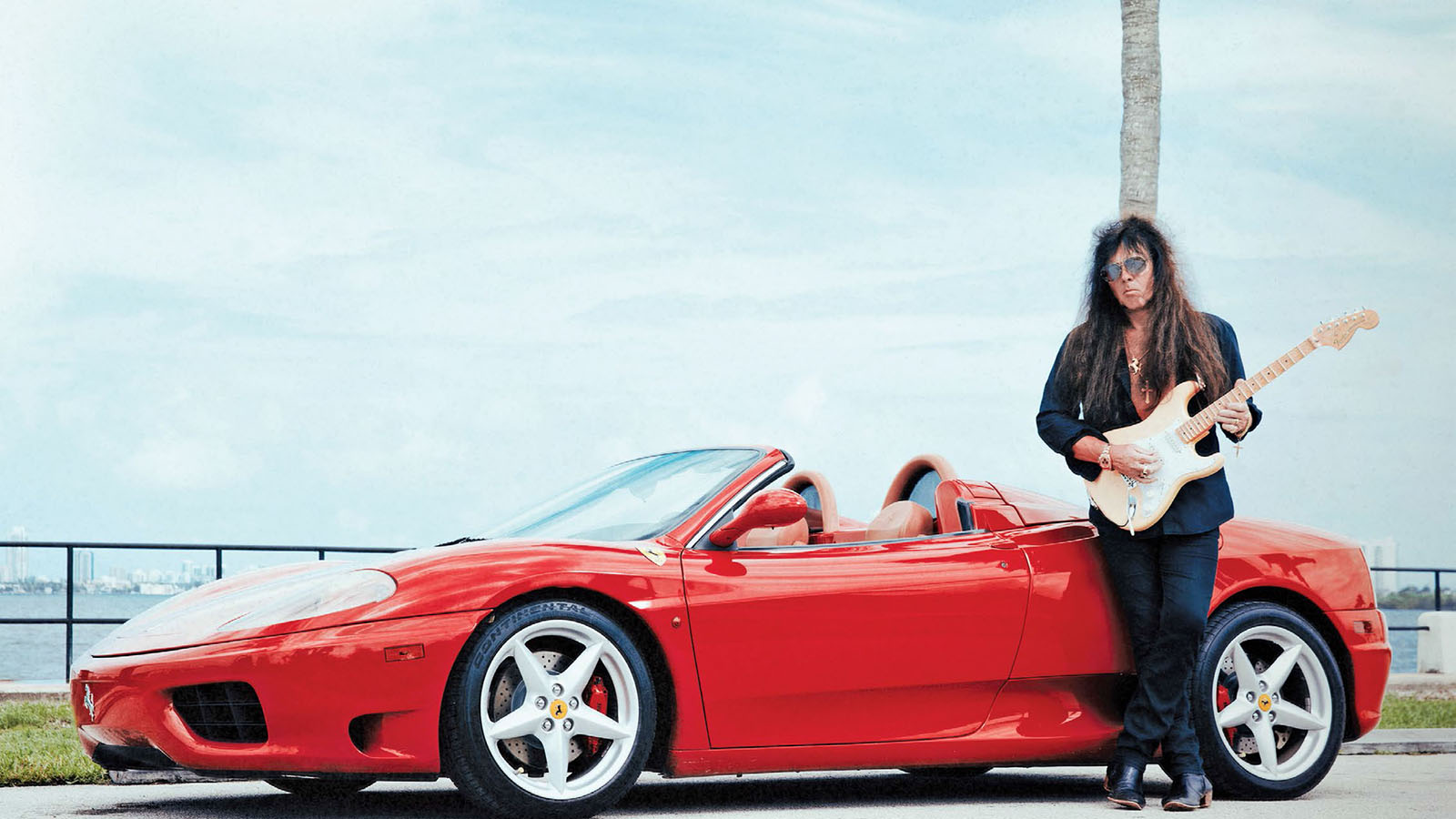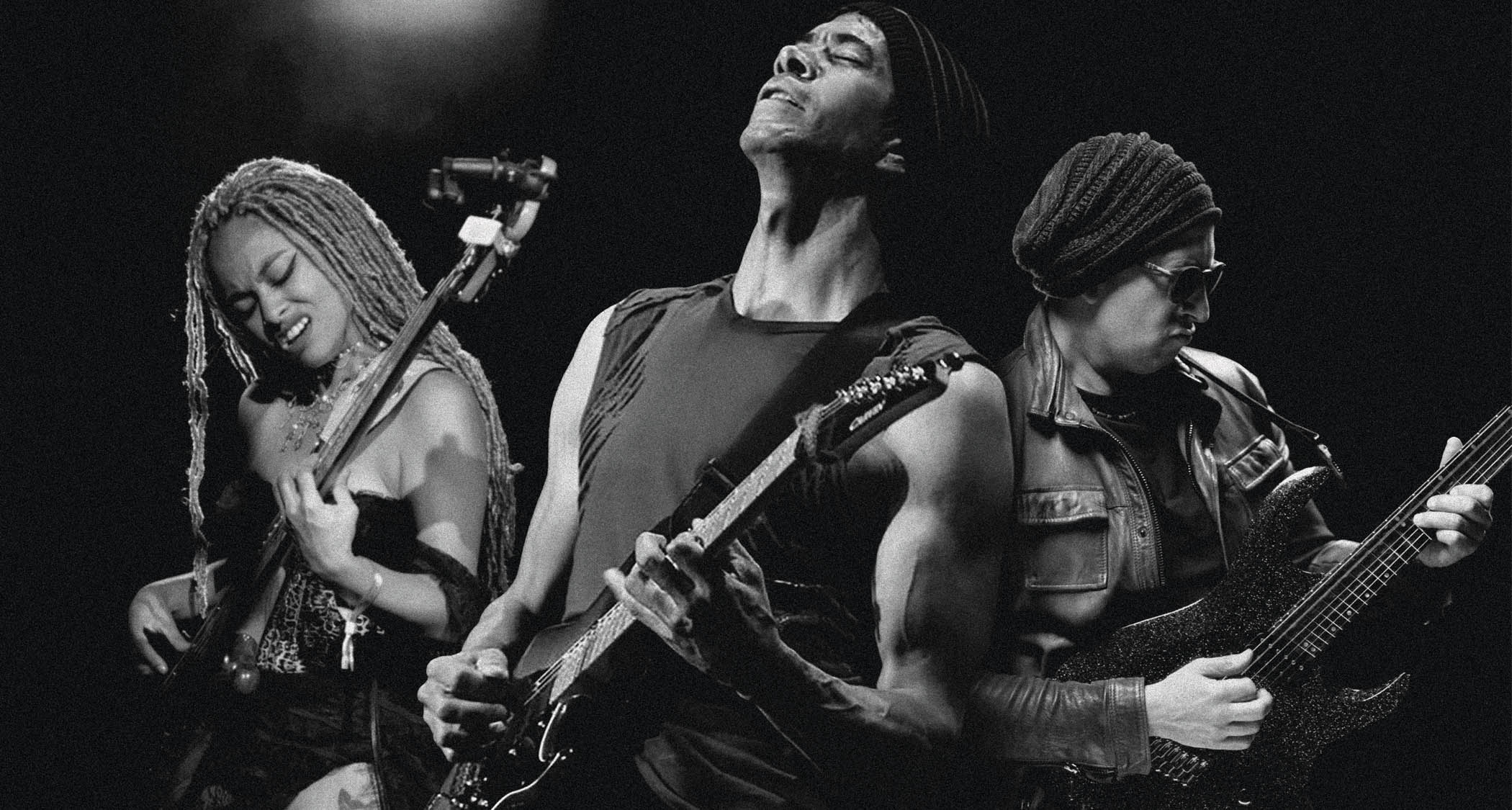Yngwie Malmsteen: "I got all the Strats. Gibsons, too. But I just keep going back to the signature gear because that’s the sound I’m looking for"
The shred god on the passion, violence and Latin behind new album, Parabellum

Whenever Yngwie Malmsteen reenters our pop-cultural orbit brandishing another shred masterpiece, it is to the electric guitar community what Haley's Comet is to astronomy. Malmsteen’s sound, as evidenced on new album Parabellum, is an unearthly spectacle, a feat of virtuosity that’s verging on the celestial.
The scientifically minded of us might be driven to dust the Parebellum master tapes down for evidence of moon dust, or to test for trace elements of radiation travel that might confirm its arrival came by way of interstellar travel. But no. Malmsteen is very much of this Earth.
If he is using his Fender Stratocaster and phalanx of Marshall guitar amps for anything inter-dimensional, then time is the dimension he is messing with – pulling together the disparate epochs of Bach, Vivaldi and Paganini with Blackmore, Hendrix et al. The anachronism in his setting of classical music’s over-sized melodic oomph to over-amped hard rock oomph remains thrilling after all these years.
As Malmsteen sits down with us to discuss the making of the record, we are reminded once more that there is something reassuringly singular about his craft, and about his persona. There’s something that suggests little has changed since he was a prodigious child back home in Sweden, using every waking our to work on his chops.
That search for something more – something outside the ordinary, beyond the well-trodden pentatonics – is what drives him. And heck, it sure is entertaining.
Parabellum means ‘prepare for war’. Why is that album title appropriate?
“Well, you know me, I like to have those kind of titles, like War To End All Wars. It’s a Latin term – si vis pacem, para bellum – which means, ‘if you want peace, prepare for war’. And it’s a very true statement, actually. That’s how humanity works. Humans will only attack someone that’s weak. So if you’re strong, you won’t be attacked. But it’s only symbolic. I’m not advocating war, of course.”
All the latest guitar news, interviews, lessons, reviews, deals and more, direct to your inbox!
How did this album test you as a guitar player?
“Well, there are a couple of things I had to really push myself on. That could be the title track or Presto Vivace in C# minor, even some of the parts within the songs, like Wolves At The Door. That’s very technical stuff.
“But above all, I wanted it to sound passionate, no matter whether I’m playing a technical part or something melodic. I’m always trying to capture a moment in the studio. All the solos are improvised, so when I go to play these songs on stage, I’m not going to play the same thing. It’s actually going to be a bit of a challenge to play this album live because I have guitar harmonies and stuff like that. But I think it’s gonna be great.”
What are your own favourite guitar moments?
“I can never really pick one, or even two. I like some of the ‘throw caution to the wind’ things. And I like some of the more written parts, too. I think it’s very much an album. Like, you go from the title track, which is a crazy piece, into the ballad Eternal Bliss, which is very soft. Right after the ballad, you go into Toccata, which is also crazy. One song can’t represent the whole thing.”
Can you talk us through the gear you used on Parabellum?
“I’m gonna surprise everybody. I used my Yngwie Malmsteen Strat, with my Yngwie Malmsteen Marshall, my Yngwie Malmsteen strings, my Yngwie Malmsteen pickups, my Yngwie Malmsteen overdrive pedal, my Yngwie Malmsteen picks, my Yngwie Malmsteen cables. I do have a ’61, ’64, ’65, ’66, ’68, ’69. You name it. I got ’em all. I got all the Strats. I’ve got Gibsons, too. All sorts of things. But I just keep going back to the signature gear because I know that’s the sound I’m looking for.”

How did your studio look for Parabellum?
“The way I’m set up in my studio is, the control room is upstairs. That’s where the guitars and the mixer board and the amps are – but the speakers are downstairs. I’ve bought an old colonial mansion.
“There’s a big basement that used to have servants living in; they had their own little apartment. So I ripped that out and I put a wall of Marshalls in there, so it’s isolated and you have perfect control. The recording chain is a Lewitt dynamic mic on Marshall 4x12 cabs through a Neve preamp, then a 1176 compressor into Universal Audio with Pro Tools.
“Then I put on some reverb and delay so it sounds nice and wet. And I just fucking go. I just do it. That’s all I have to do to get my sound. Switch on the amp and that’s it – boom. I don’t even have to mic things up. It’s all set. So that’s very good for inspiration. When I’m inspired, I just do it. I don’t even need the engineer.”
All the ‘keyboard’ parts were done with a Roland Guitar Synth MIDI pickup into Kontakt and Omnisphere sample libraries. In other words, I played all the keyboard parts on guitar
You’ve said the effects that sound like synths are actually guitar…
“Yes, all the ‘keyboard’ parts were done with a Roland Guitar Synth MIDI pickup into Kontakt and Omnisphere sample libraries. In other words, I played all the keyboard parts on guitar. It’s crazy!”
How has the lockdown affected your guitar technique?
“First of all, where I live in Florida it was never a lockdown. So I was always cruising around, doing what I do. But, of course, there’s no touring, which is a huge thing. I didn’t think about it until now, but I constantly go on tour. I had a world tour booked for 2020 and the agent called and said, ‘We’re gonna have to move that back.’
“Okay, whatever. So I started writing, waiting for things to open up. But they didn’t open up, so I just kept writing and recording and made this album. In two weeks, I’m headlining a festival in Serbia, of all places. So our schedule is getting back to normal. It’s about fucking time!”
- Parabellum is out now via Mascot/Provogue.
Henry Yates is a freelance journalist who has written about music for titles including The Guardian, Telegraph, NME, Classic Rock, Guitarist, Total Guitar and Metal Hammer. He is the author of Walter Trout's official biography, Rescued From Reality, a talking head on Times Radio and an interviewer who has spoken to Brian May, Jimmy Page, Ozzy Osbourne, Ronnie Wood, Dave Grohl and many more. As a guitarist with three decades' experience, he mostly plays a Fender Telecaster and Gibson Les Paul.

